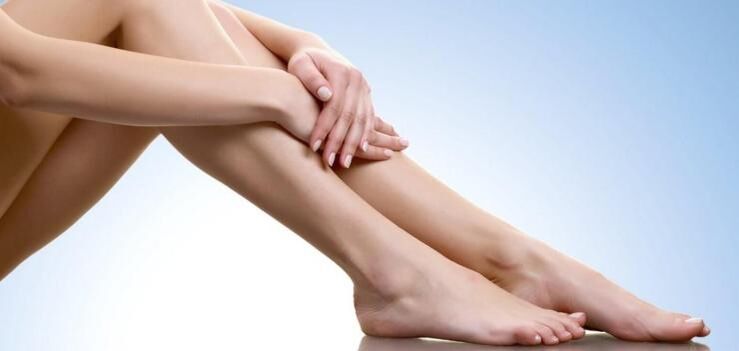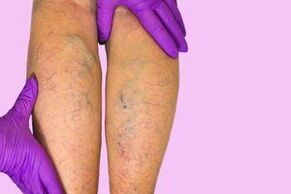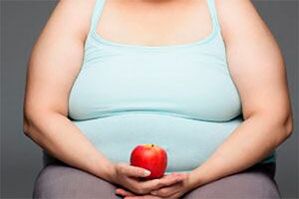
In the modern world, a large proportion of the population suffers from varicose veins.The condition is included in the World Health Organization's list of "diseases of civilization."This disease is more common in women due to lifestyle and genetic predisposition.This disease affects not only older people but also young people.When it comes to varicose veins, contraindications and restrictions are quite extensive and failure to comply can lead to serious consequences.
When the first signs of varicose veins appear, you must undergo an examination by a surgeon and strictly follow his instructions.There is no need to be kind to yourself, as this may lead to irreversible changes.
degree
Varicose veins in the lower limbs gradually appear.There are 3 degrees.
compensation stage.The legs become swollen and tight, especially after walking or standing for long periods of time.There may be burning and pain in the blood vessels of the lower limbs and spasms in the calf muscles.Subsequently, a small network of blood vessels appears, appearing as a "star".It is recommended to minimize a sedentary lifestyle and engage in preventive exercise. Women should avoid wearing high heels.
Women should avoid wearing high heels.
subcompensatory stage.During this stage, leg pain increases and cramps and swelling become more severe.The veins become more visible and swell to bluish nodules; their walls become thinner, and the blood vessels may rupture.The skin in the affected area becomes peeling and itchy.Localized areas cannot be groomed, which may result in microtrauma.It is best to avoid tight underwear and tight clothing.Strenuous exercise and heavy lifting should be avoided!
decompensation stage.This stage is characterized by difficulty in blood flowing out of the veins, resulting in severe swelling of the lower limbs.Persistent trophic ulcers and eczema may occur.This stage is often accompanied by vascular inflammation and thrombosis.If the lumen is blocked by a thrombus, surgical intervention is required.During the decompensation phase, a pressure garment must be worn.Strenuous physical activity should be avoided.
limitation
If pain occurs, weight loss may be needed if the patient is overweight.Diet is necessary to reduce blood cholesterol levels, which can clog the lumen of blood vessels and cause the appearance of blood clots within them.

If you experience the first symptoms of varicose veins - muscle itching, burning, numbness, you need to stop drinking alcohol and reduce your salt intake.These products contribute to the formation of lipoproteins in blood vessel walls and the development of atherosclerosis.
For varicose veins, it is recommended to choose comfortable, "correct" shoes.Wearing shoes that are too tight, especially high heels, can cause congestion in the legs.
Your orthopedic surgeon will help you choose orthopedic insoles and recommend compression garments and special stockings.
Leech therapy, acupuncture and physiotherapy are contraindicated if skin integrity is compromised.
Contraindicated procedures
For varicose veins, hot baths are not recommended; it is better not to go to bathhouses and saunas.
In the early stages of varicose veins, you can take a hot bath and soak your feet.
Massage, especially cupping and honey, cannot be performed in the advanced stages of the disease.The use of various cosmetic preparations for packaging is prohibited.
Leg hair can be removed in the absence of eczema and ulcers, but sugar and wax strips should not be used.
Hot compresses are contraindicated; they can aggravate trophic ulcers or cause allergies.
Prolonged exposure to sunlight and sunbathing is extremely undesirable.Tattoos should not be placed on affected areas of the body, especially when the integrity of the dermis is compromised; this may lead to serious complications.
During the decompensation phase, warming physical therapy procedures are not performed.Magnetic therapy and darsonvalization are helpful in the initial stages.
Illegal drugs
Women with varicose veins should not take hormonal contraceptives.They cause the blood to thicken and pose a risk of blood clots.
You should not take diuretics or other medications that help remove excess fluid from the body; this can negatively affect metabolic processes.
Take any medication only with your doctor's approval.
physical activity
For mild varicose veins, non-strenuous physical activity is recommended.Hiking, biking, swimming, yoga and Qigong exercises are all useful.
If there are no bulging blood vessels, you can practice callanetics and stretches.

In cases of advanced pathology, the following are strictly contraindicated:
- Long-term static load;
- Lifting more than 5kg, powerlifting and wrestling;
- Outdoor sports games such as football or volleyball;
- mountaineering and hiking;
- professional dance classes;
- Running fast, especially long distances;
- parachute;
- Aerobic exercise.
Disable product
For people with varicose veins, adhering to the right eating habits is crucial.
exclude:
- fatty foods;
- Pickle;
- bacon;
- Marinade;
- canned food
Avoid sweets, flour and butter products, and products high in palm oil.These foods can trigger atherosclerosis.
The diet of a patient with venous disease should not include fast food, processed foods, carbonated drinks, coffee, and strong tea.
It's best to limit salt and spicy or too hot spices, celery and mint.
dietary advice
For varicose veins, patients need to eat small amounts of food, but usually up to five times a day.Monitoring your diet is especially important for people who are overweight.Because of their excess weight, they are at risk for thrombophlebitis and subsequent vascular embolism.
Products should undergo mild heat treatment, preferably baking, steaming and boiling.Smoking and fried foods should be avoided.
People with varicose veins should drink the required amount of fluids every day, approximately 2.5 liters.If the drinking regime is not followed, the blood can thicken and clots can form.
general advice
In order to improve the quality of life, people with venous insufficiency must adhere to certain rules:

- In advanced varicose veins, strenuous physical activity is prohibited;
- Sit less, stand less, and move more.If you work alone, stand up and stretch regularly;
- Eliminates constipation, which causes congestion in the pelvic organs;
- Eat a correct and adequate diet, and eat more fresh vegetables and fruits to obtain necessary trace elements and minerals;
- If there is congestion in the lower limbs, you need to wear compression garments;
- Quit drinking (even in small amounts) and smoking.These bad habits can lead to hardening of the vein lumen;
- Take anticoagulants as prescribed by your doctor;
- Get adequate sleep, at least 8 hours;
- Elevate your legs while lying down;
- Preventive gymnastics.
You can relieve the symptoms of this disease with the help of horse chestnut tincture, vascular protective and cooling ointments, and pain relievers.To improve blood circulation, necessary medications, vitamins C, E and P, and antispasmodics are required.
At the first sign of pathology, you should contact your surgeon or phlebologist.Self-medication is completely unacceptable.
Using pain relief ointments and pills can provide temporary relief from a person's condition, but does not cure it.Only a specialist can assess the severity of the disease and refer the patient for necessary examinations and diagnostic procedures.Depending on the examination results, appropriate treatment is given.
In the event of venous rupture or thromboembolism, surgical intervention is required and cannot be delayed, as these conditions can be life-threatening for the patient.


















